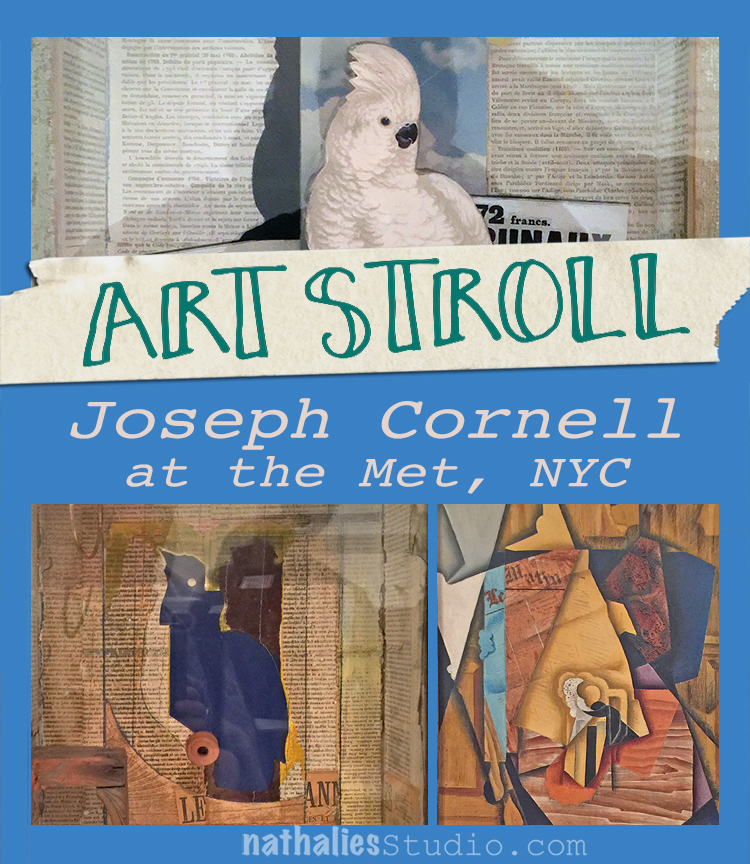
A couple weeks ago I went to the Met and one of the exhibitions I enjoyed in this art mecca was a small exhibition “Birds of Feather” Joseph Cornell’s Homage to Juan Gris. I loved this exhibition because it is about an Art Stroll – which was inspirational and turned into some beautiful art!
In 1953 Joseph Cornell saw Juan Gris’s painting below at an exhibition
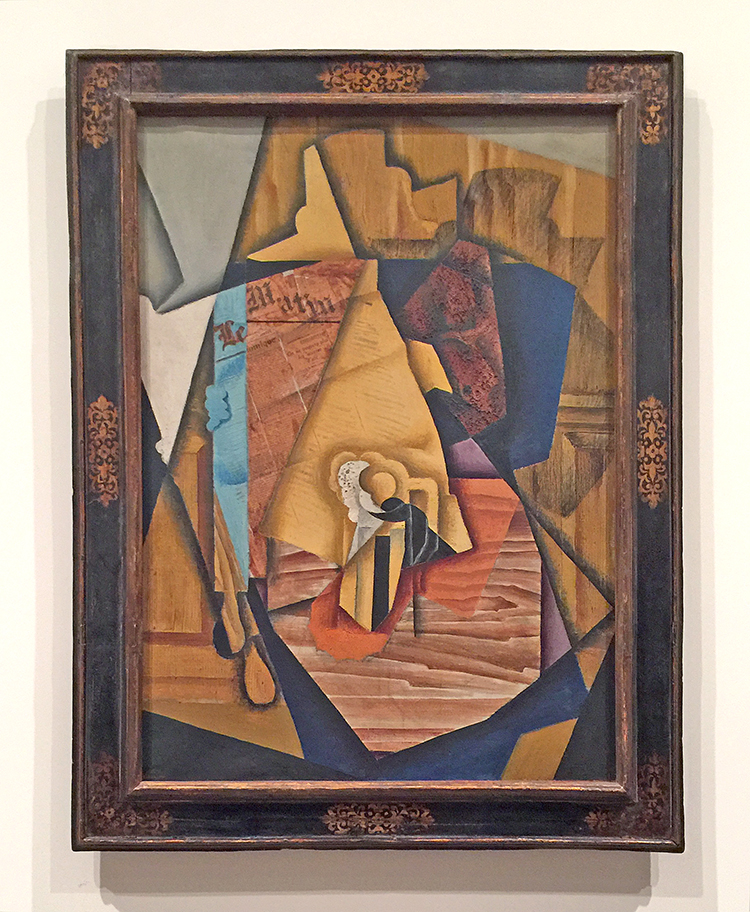
“The Man at the Cafe” , 1914 by Juan Gris – oil on canvas with newspaper collage.
This painting captured Cornell’s imagination and he created 18 glass fronted boxes, two collages and one sand tray over the following thirteen years in homage to Gris. Here are just a few of the boxes:
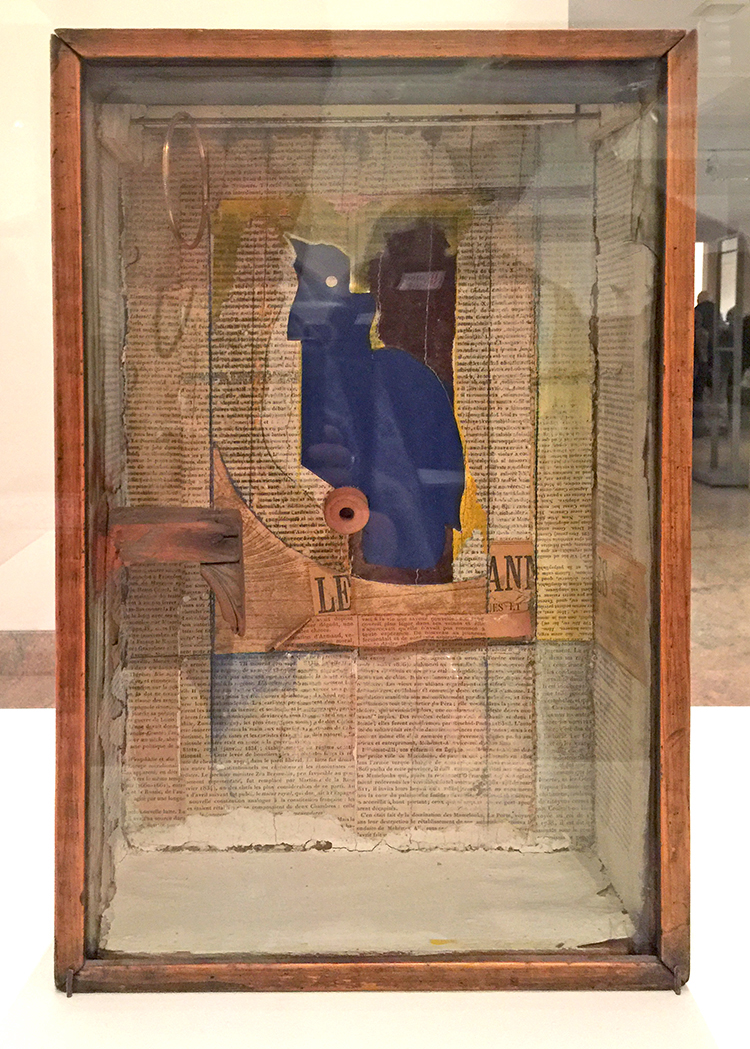
“Josette; Juan Gris #5” ca. 1959-60
This ox is named for Josette Herpin, Gris’s companion. In 1959 Cornell dreamed of a blue cockatoo and explained in his diary that “Josette came to life” . Cornell knew of her two portraits by Gris, where she sits in a black armchair the contour of which mimic the projected shadows of Cornell’s first cockatoos. He was likely inspired by the blue hues of her bust-length portrait. for the colored silhouette in this box.
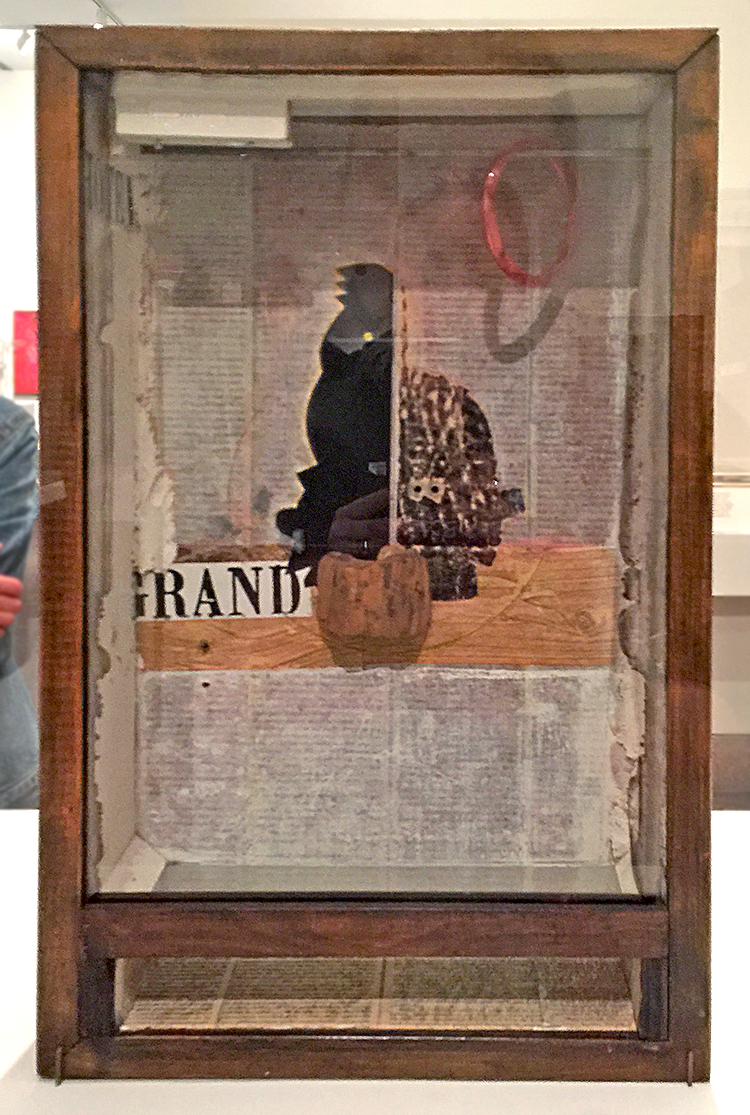
Untitled (Juan Gris Series, Black Cockatoo Silhuette) ca. 1959-60
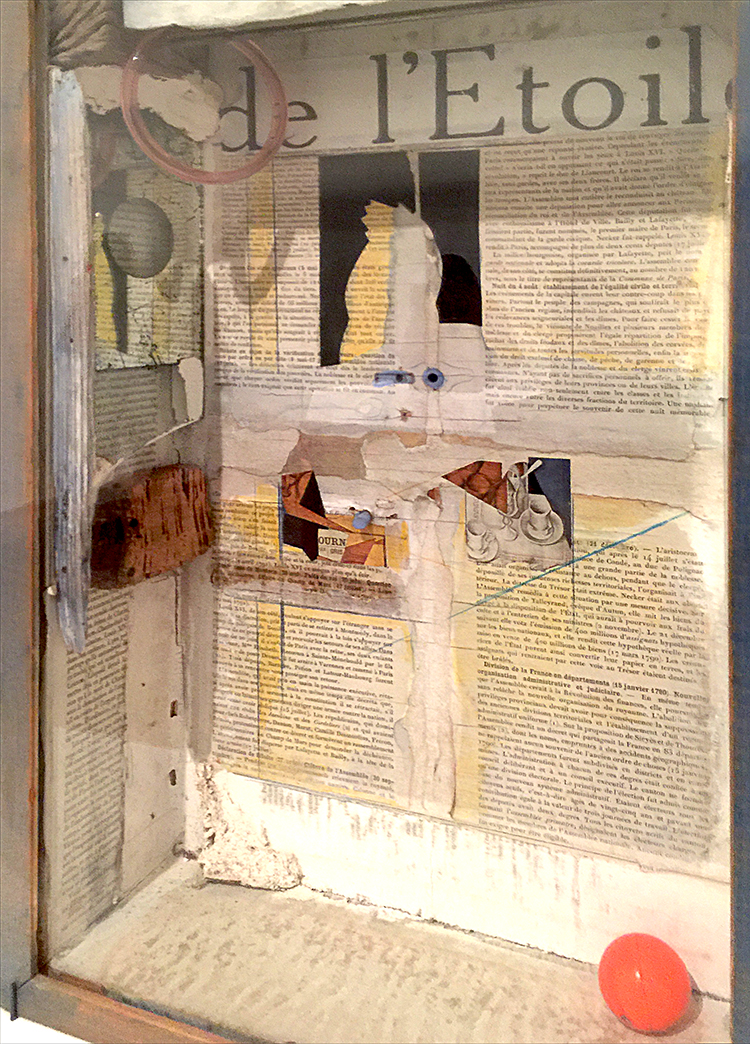
Cornell’s interest in cut-and-pasted paper was a direct response to Gris’s collages.
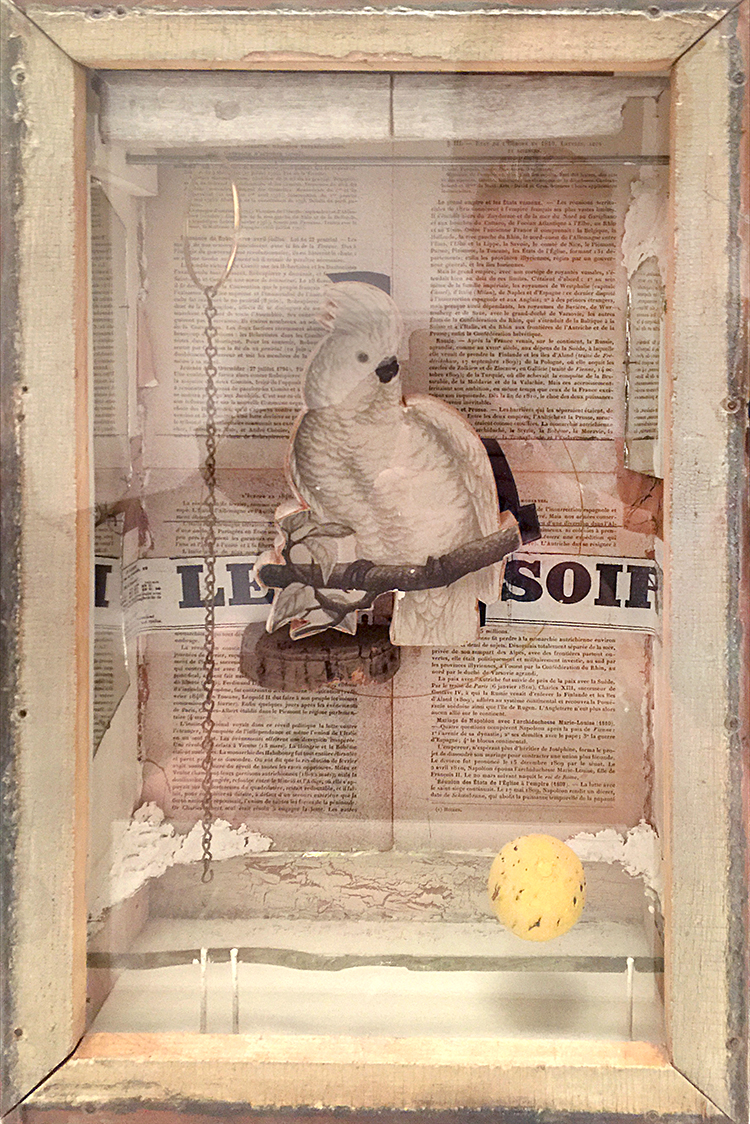
The artist lined his cockatoo boxes with pages from 19th century French texts, which he found in Manhattan book stalls. The photo below is actually the back of one of the boxes -I love this!
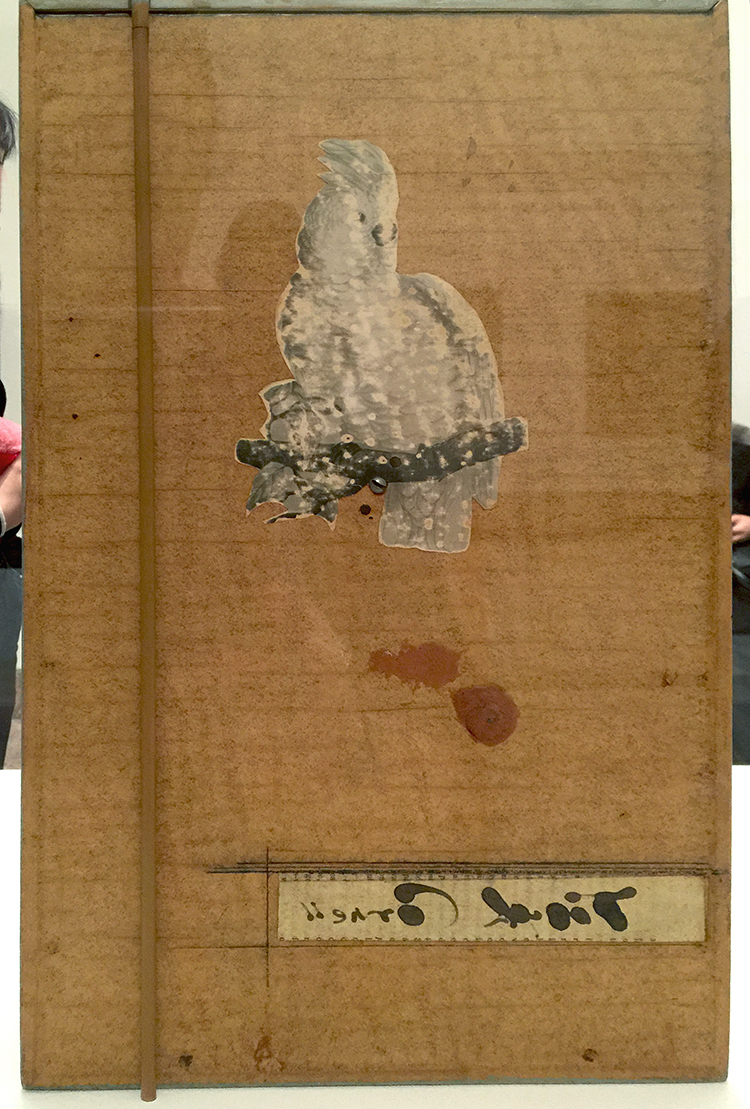
Other elements that characterize the Gris boxes are fragments of floral wallpaper, marbleized paper, and commercial labels.
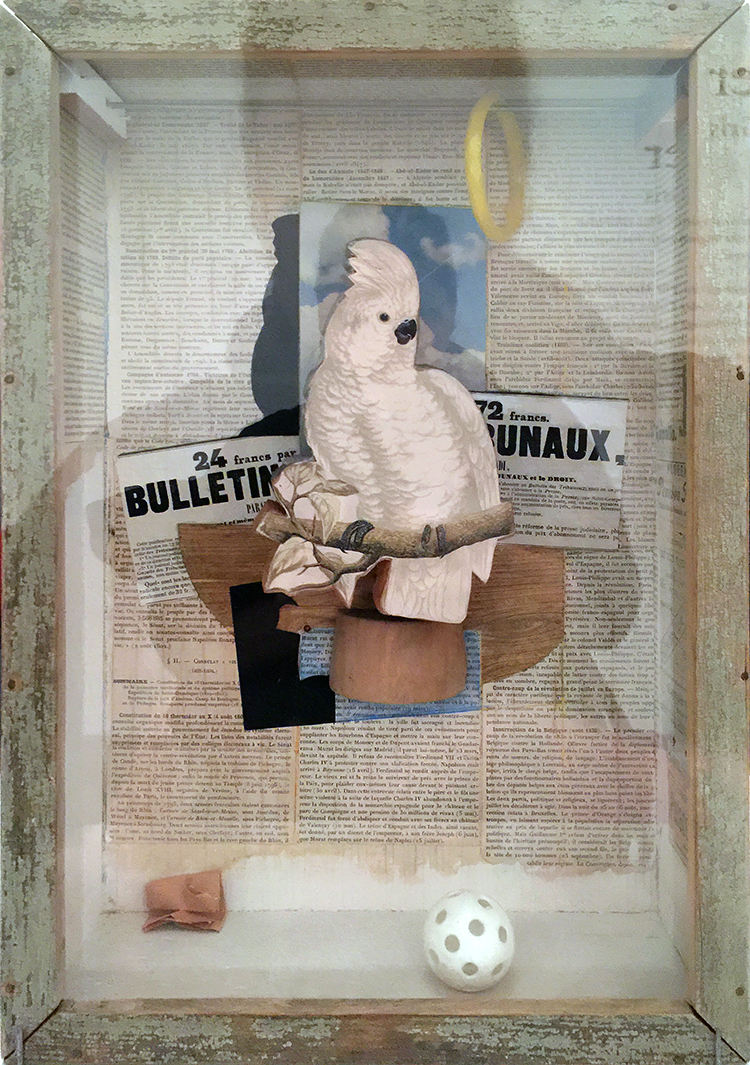
I love Cornell’s boxes- makes me really want to do more assemblage again. I also loved seeing the original inspiration and then so many different versions on how he spun the inspiration. The first box shown here still has some traces of the inspiration – but only if you know about the piece by Gris – but you would not know with the other ones without knowing about the story. Fascinating, don’t you think?
Hope you enjoyed this art stroll- see you soon for another one :)

Comments (2)
Sue Clarke
| #
Pretty cool that Cornell was so inspired after seeing Gris’ art.
I can see that they would be fun to view, but I have to say that it makes me ask the question:
Why is that in a museum more than anything else that has been created?
Interesting what is determined to be “worthy of a museum” art versus anything that someone around me might create.
Just saying.
I tend to enjoy art that makes me question it and evaluate just what the artist was trying to get across.
Just my thoughts.
Enjoy your weekend and thanks for sharing Nat.
Reply
nathalie-kalbach
| #
It is a good question- love it. I think you always have to see art also in context of art history. Joseph Cornell was a pioneer in using found objects to create 3D art and create assemblage pieces. Taking what once was used and beautiful and then regarded as garbage to create something new was still a pretty new concept and he was taking it a step further from Collage. He inspired many influential artists with his work like Robert Rauschenberg and Andy Warhol. What you see other artists doing today is what sprung from those roots. I think it is easy to forget how new and shocking some things were at certain times. But he who was a pioneer and inspired so many people after him, was also inspired of course by other artists- in this case by Gris who was part of the Cubism movement which again was CRAZY back then (and sometimes even for some people today) That is what fascinates me. I also think that those photos cannot convey the magic of his boxes – they are little wonder boxes. I love that you asked this question – I wonder myself with other art pieces a lot – but the greatest task is trying to find the answer or try to understand – wether it will be satisfying or not – it opens the world and makes us receptive to learn so much about so many things. That is what makes those Art Strolls besides the instant inspiration through color, texture, subject etc. so valuable for me.
Reply